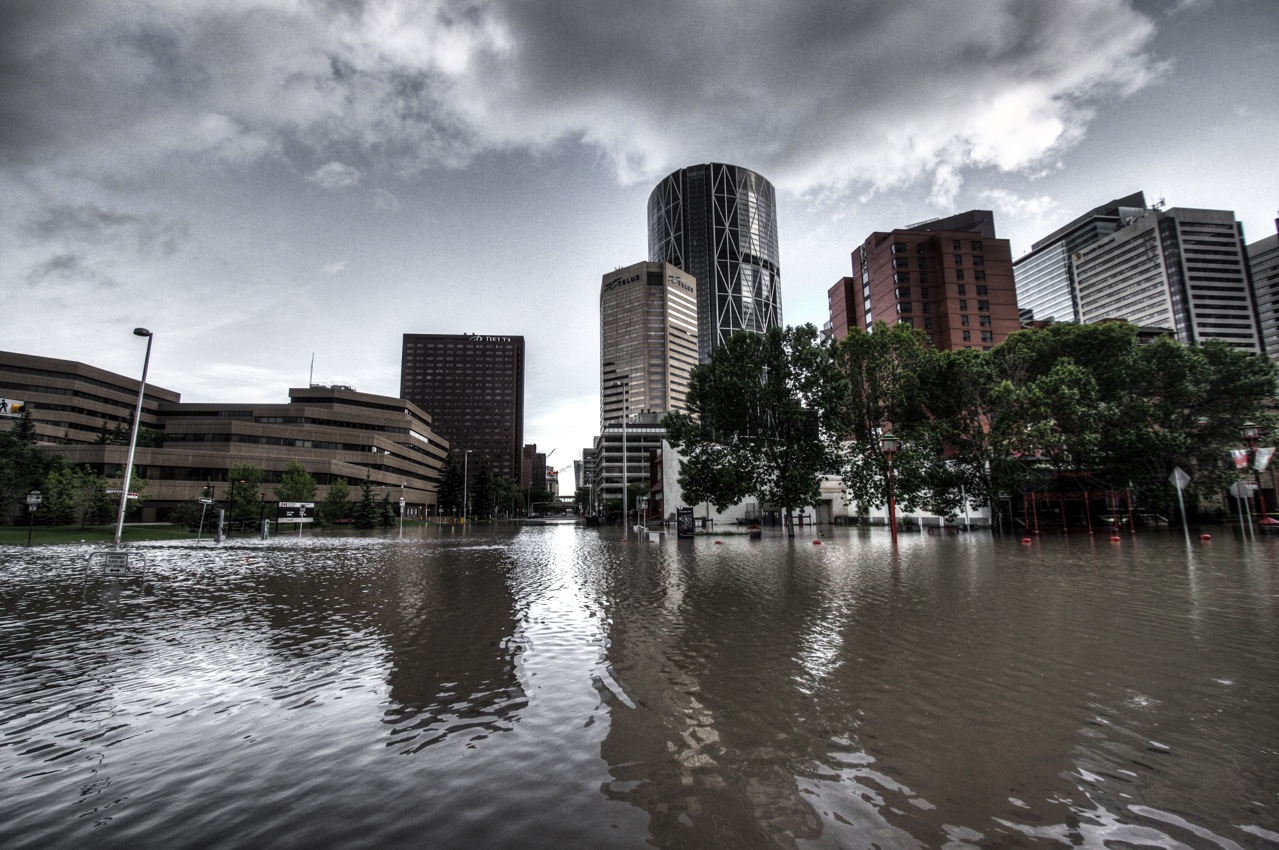A study released on May 21 found that a majority of Canadian cities are not adequately prepared for flooding. The study, which was commissioned by The Co-Operators and written by Blair Feltmate from the University of Waterloo’s Faculty of Environment, assessed 15 major Canadian cities. The report aims to motivate the cities to increase efforts to build resilience against flooding, and to provide a benchmark against which their progress can be measured.
Researchers examined the cities’ preparedness for flooding caused by extreme rainfall, relative to 16 areas of flood vulnerability. It identified four key areas of strength and several outstanding challenges facing municipalities.
Relative to strengths, the study found that most Canadian cities mandate the installation of backwater valves for new home construction. This is an effective step to prevent water from entering a house through the basement drain when sewer systems are overwhelmed during a storm. Another area of strength was the development of up-to-date flood plain maps, which most cities have undertaken to predict the extent of storm-related flood coverage. Similarly, in most cities, land use planners are using the maps to restrict building in flood prone areas. Urban drainage maintenance was also on the rise, as municipalities strive to keep culverts, grates and storm sewer systems clear in anticipation of flooding.
“Flooding is by far the most common type of natural disaster in Canada, and there is a wide range of actions that can be taken to build a city’s resilience to its destructive force,” said Kathy Bardswick, president and CEO of The Co-operators.
In addition to the four areas of strength mentioned above, the study examined a number of issues including electricity and petroleum supply, food and water, telecommunications systems, transportation, banking and financial services, and emergency responders, among others.
The cities’ overall scores for flood preparedness are:
1. Ottawa A- 9. Fredericton C
2. Winnipeg B+ 10. Whitehorse C
3. Calgary B 11. Charlottetown C-
4. St. John’s B 12. Quebec City C-
5. Toronto B- 13. Regina C-
6. Montreal B- 14. Vancouver C-
7. Mississauga C+ 15. Halifax D
8. Edmonton C










An interesting and relevant report. It seems concerning that the recommendations in the report (and the report in general) were void of the benefits related to reducing the peak flow intensity, including the potential of environmental services for infiltration, resistance to flow, and storage. Either this is not a focus for Canadian cities, the associated benefits were deemed too difficult to estimate and thus not explicitly included in the report, or the benefits were deemed to be marginal.
Perhaps it was implicitly acknowledged in “Urban drainage”, but the focus of this seemed to be related to green infrastructure. There is a brief exception in discussing Vancouver, where it was mentioned that their nearly completed integrated stormwater management plan includes “permeable approaches” and green infrastructure.
The recommendations are valuable and could be strengthened by explicitly including more actionable recommendations such as those included in the Canadian Water Network’s report on Innovative Stormwater Management, in conjunction with the recommended backwater valves.
An interesting and relevant report. It seems concerning that the recommendations in the report (and the report in general) were void of the benefits related to reducing the peak flow intensity, including the potential of environmental services for infiltration, resistance to flow, and storage. Either this is not a focus for Canadian cities, the associated benefits were deemed too difficult to estimate and thus not explicitly included in the report, or the benefits were deemed to be marginal.
Perhaps it was implicitly acknowledged in “Urban drainage”, but the focus of this seemed to be related to green infrastructure. There is a brief exception in discussing Vancouver, where it was mentioned that their nearly completed integrated stormwater management plan includes “permeable approaches” and green infrastructure.
The recommendations are valuable and could be strengthened by explicitly including more actionable recommendations such as those included in the Canadian Water Network’s report on Innovative Stormwater Management, in conjunction with the recommended backwater valves.